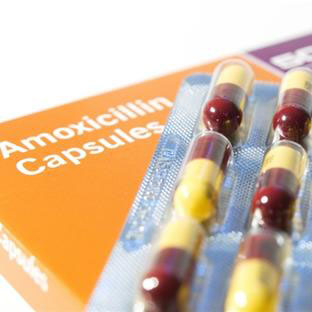Should GPs be paid to meet antibiotic prescribing targets?


YES
I am no fan of targets or financial incentives but antibiotic prescribing may be the exception to the rule. Every little helps, and we know that reduced antibiotic prescribing would mean reduced resistance and more effective antibiotics.
Targets would need to be preceded by a national public health campaign so that restrictions wouldn’t lead to more GP bashing. Antibiotic overuse is far more common in hospitals and out-of-hours services, not to mention the rampant abuse in other countries and also in animals).
Incentives could consist of a payment, received by all practices whose prescription of antibiotics was below the national norm. Those above the norm would receive the payment if they could show they had reduced prescribing and describe what they had done.
The case is simple: many of us overprescribe antibiotics and, historically, prescribing incentives have been shown to work.
No new classes of antibiotic have been produced since the 1980s. Antibiotic resistance is increasing. And, as the Chief Medical Officer recently warned, people are now beginning to die because of infections that are resistant to antibiotics.
Furthermore, GPs know that for an individual patient the chances of an antibiotic working again within three months of being previously used are significantly reduced.
So what might be the case against targets? Might GPs fail to give antibiotics to those that need them? Unlikely. Might we incur the wrath of those who think they need them? Possibly, but the current antibiotic crisis demands it.
There is only one watertight argument against the proposal, and that is about its potential effect on GP professionalism. Targets and incentives risk making us cynical and jaded, tempt GPs to give up on their principles and patients, and coerce some into gaming the system.
Overuse of antibiotics is, however, a serious issue and like personal care and continuity should be a priority. So why not have incentives, and reward those already prescribing less?
GPs aren’t thick. We went into the job precisely because we have strong values and want to do our best.
If policy and pay properly reflected this it would be okay to give us an occasional steer in issues of the highest priority, of which the impending antibiotic crisis might be one.
Dr Michael Dixon is chair of the NHS Alliance and a GP in Devon

NO
Targets are not the best way to reduce antibiotic prescribing – in fact, they can be very problematic.
If targets are implemented any other way, problems arise. National targets would not take account of deprivation, so targets based on expected numbers or a national average would be inaccurate.
Targets can be simplistic. Comparison with previous years would reward a GP who had performed poorly but improved more than a colleague who performed well. They can also be inflexible, particularly if guidance on antibiotic prescribing changes during a financial year. ‘Naming and shaming’ of high-prescribing GPs would lead to demoralisation and there is also evidence that targets lead to gaming.
At the moment, GPs worry they face complaints or even legal action if they don’t prescribe. Worst of all, some patients might be denied an antibiotic if these had been over-prescribed earlier in the financial year, as financial incentives might affect clinical judgment.
They might work in some cases. For example if an adult presents with sore throat, electronic prompts could ask whether the symptoms fit the Centor criteria. But a low score still represents a small chance of bacterial infection, and a blunt national target leaves little room for GP judgment.
Instead of punitive targets, I propose a national framework of educational support for GPs on antibiotic stewardship. This would include incentivised annual audit, with data collated by CCGs. An annual meeting in each practice to discuss antibiotic prescribing could then take place, enabling comparison with similar practices. Local meetings could give GPs the chance to meet microbiology colleagues, and discuss guidelines and learning needs. Local GP antibiotic champions could ensure meetings take place, and foster better links with microbiology or Public Health England.
Reducing antibiotic prescribing is paramount and urgent. It is vital GPs become engaged with owning this problem. But instead of punishing with targets, we need to support primary care, by developing a robust framework of educational stewardship for the future.
Dr Sara Ritchie is a GP in Stoke Newington, north London
Visit Pulse Reference for details on 140 symptoms, including easily searchable symptoms and categories, offering you a free platform to check symptoms and receive potential diagnoses during consultations.









